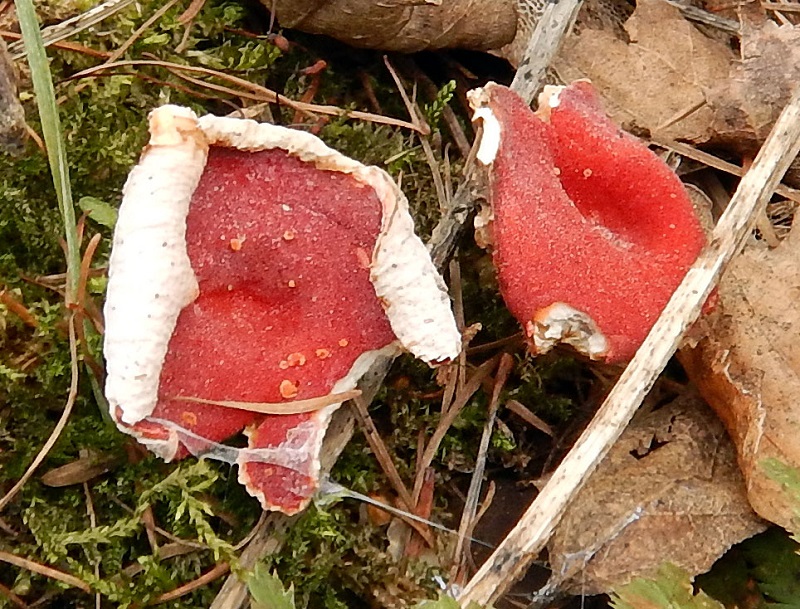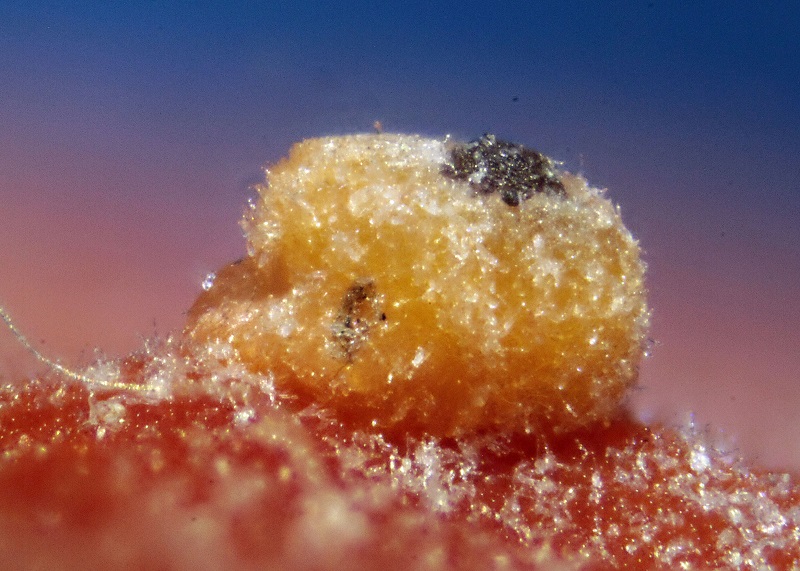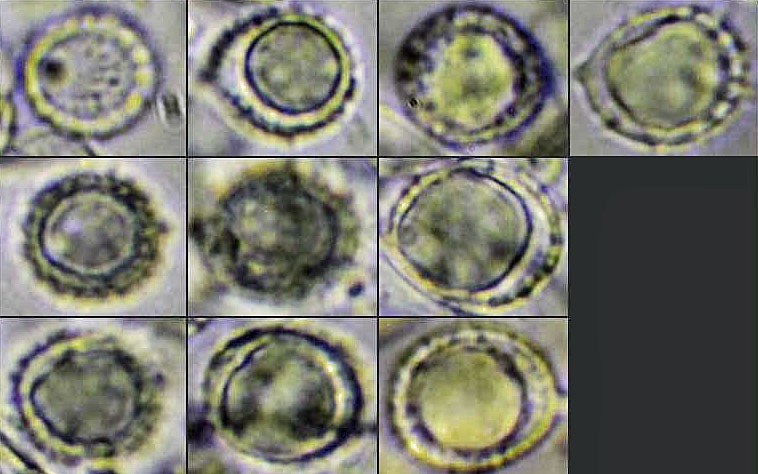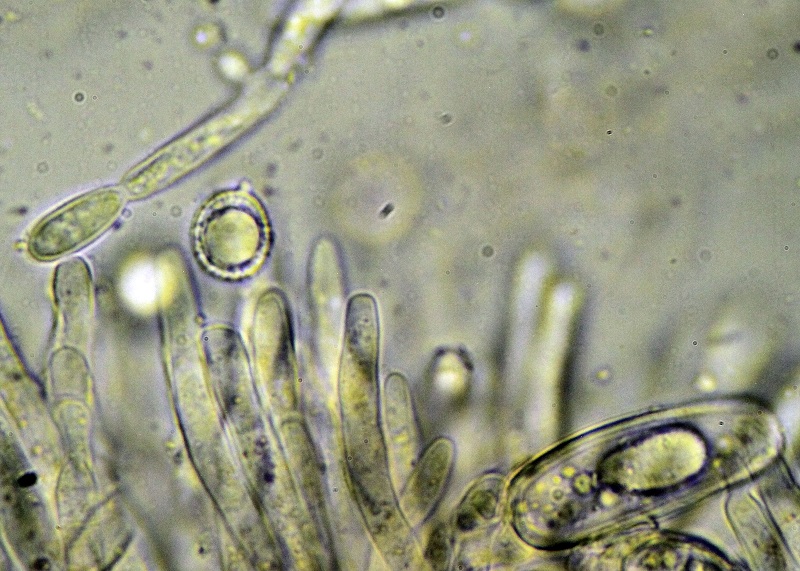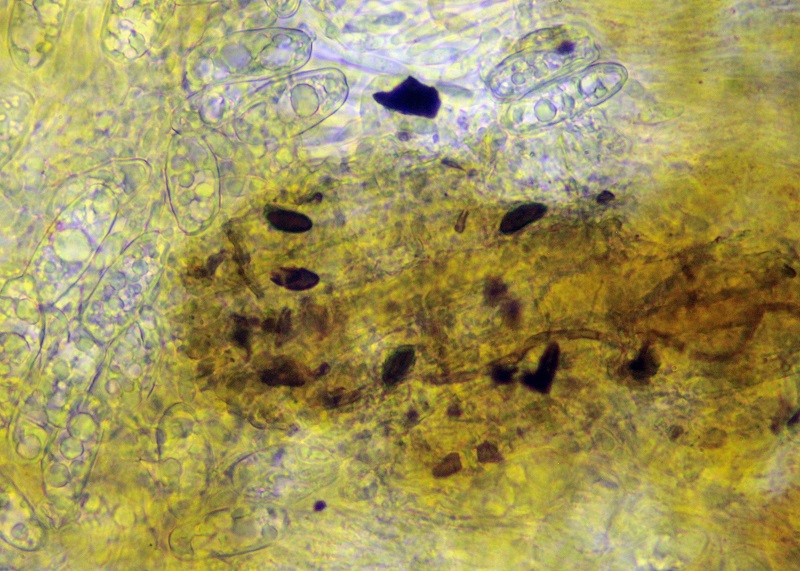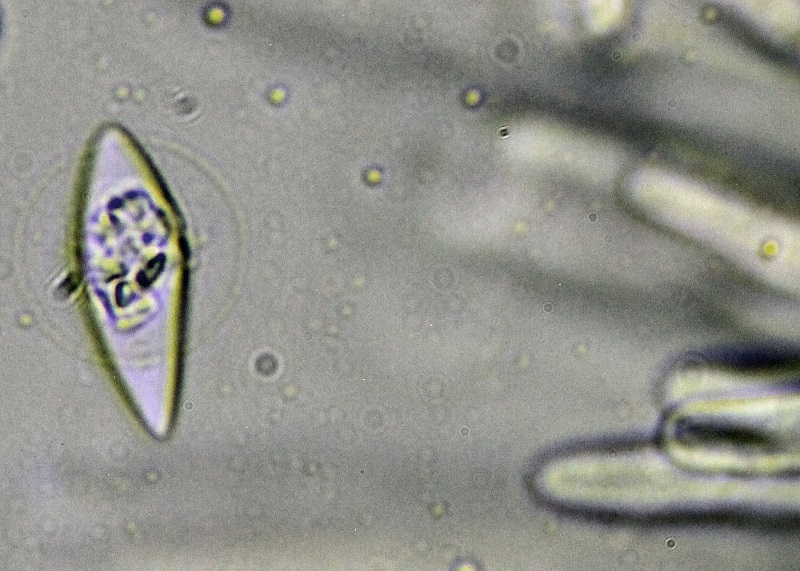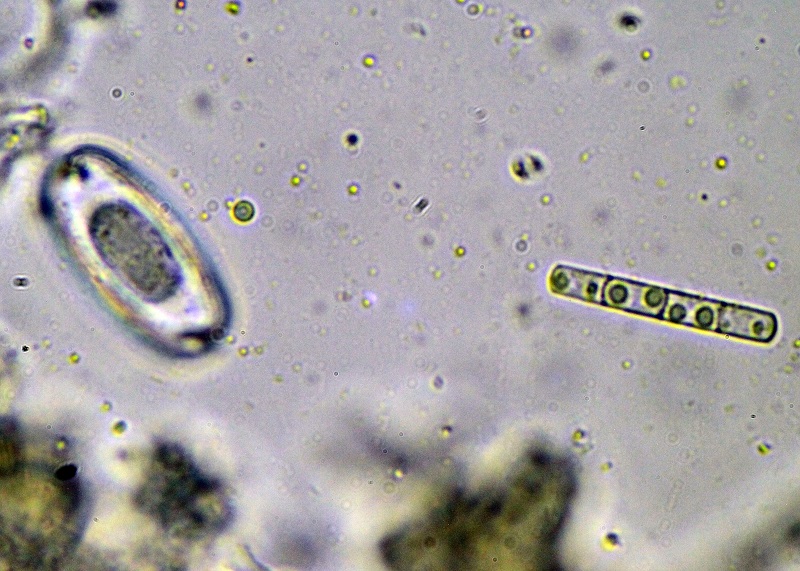Home › Forums › PUBLIC DISCUSSION BOARD › Warty Elves ? (Sarcoscypha)
- This topic has 3 replies, 2 voices, and was last updated 7 years, 3 months ago by Keith T.
-
AuthorPosts
-
-
April 9, 2017 at 5:08 pm #2827Keith TModerator
I was out in Morralee Woods at Allen Banks on 13th March, and collected some Sarcoscypha, to prove they were austriaca. However, a couple had some small excrescences on their surface. When I looked at my photos in the woods, one elf cup which I hadn’t collected had quite a few on it. They look like they could be ascos themselves. So what are they?
Pictures:
1) the specimen in situ that showed a lot of the structures
2) top view of the biggest structure I actually brought back, 0.8 x 0.7 mm across
3) side view of the same
4) showing it alone on the hymenium
5) another pair
I’ll put the microphotographs in another postIt seems to me that they could be:
another species of asco, a fungus on a fungus,
or a Sarcoscypha growing on a Sarcoscypha,
or an outgrowth of the Sarcoscypha, akin to a human wart
perhaps stimulated by something external – animal, vegetable, mineral or fungal – causing something like a gall
or something elseI was at Cupola Bridge at Allen Banks on 23rd March, and saw more elf cups, but none were ‘warty’. I also looked online, and the vast majority of pictures had smooth hymeniums. A couple looked like they may have similar marks.
http://www.discoverlife.org/mp/20p?see=I_MWS31715&res=640
https://upload.wikimedia.org/wikipedia/commons/3/3c/Prachtbecherling003.JPGSo –
Have any of you noticed this phenomenon before?
Has anybody seen any mention of it in the literature?
Can anybody put a name to it?
Keith -
April 9, 2017 at 5:12 pm #2832Keith TModerator
These are the microphotographs:
6) there were quite a few spherical spore-like objects in a squash of the structure, spiky looking and one even looking reticulate. So a picture of them in the squash
7) and a collection of the spores. Mean size 8.4 x 7.6 mic
8) for comparison, a picture that shows A Sarcoscypha ascospore bottom right, a round ‘spore’ and above it a budding Sarcoscypha conidium. -
April 21, 2017 at 10:37 am #2833JohnKeymaster
The spiky spores look like they have apiculi. Did you find any basidia? If there are no basidia, do you think the spiky spores are just accidental visitors?
A vertical cross section through the “wart” might help to identify whether it is an asco, but I realise it is probably an impossibility with dry material. If any more turn up in fresh material we would try embedding some and taking a vertical slice.
Cheers,
John -
April 21, 2017 at 5:56 pm #2841Keith TModerator
Thanks John – apiculus – yes, a very good point, so to speak. As you imply, something not found on ascomycetes. I’ve had a look through my photos, and can spot only one possible basidium (IMG90).
There are other details I didn’t mention for fear of muddying the waters. IMG63 shows more spore like objects – they remind me of Hypoxylon spores and may be from the black bits of the ‘wart’. I saw a couple of patches in the squash.
I did try to section the wart, but as it was less than 1mm, it turned into the squash! IMG56 shows the edge of the wart. IMG72 is another of the round spores in place. IMG81 was a rhombus like ‘spore’, but there was only one. Similarly IMG86 shows a solitary cell chain.
So I agree, any amount of these things may be ‘acceidental’ – but did they stimulate a reaction?
I went back to the site on Wednesday19/04 but despite having a 10 figure grid reference, found no elf cups at all. It was very dry.I look forward to the solution presenting itself.
-
-
AuthorPosts
- You must be logged in to reply to this topic.
